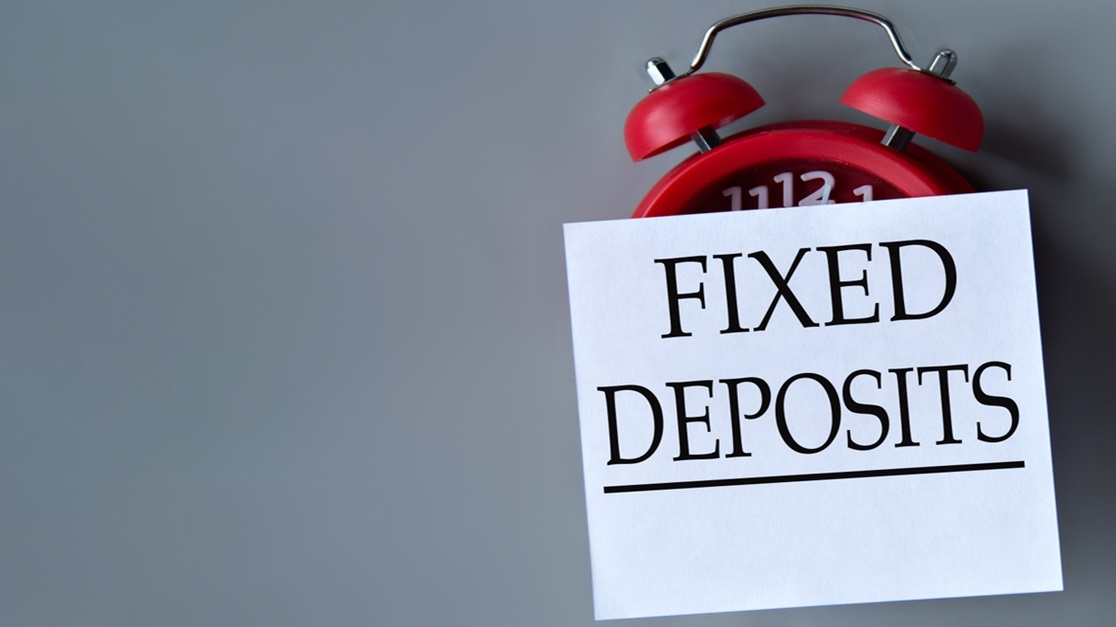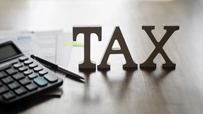Introduction to Fixed Deposits: A Safe and Reliable Investment Option
July 16, 2025

When it comes to investing, Fixed Deposits (FDs) have long been considered a go-to option for many Indians. The popularity of FDs stems from their safety, guaranteed returns, higher interest rates compared to Savings Accounts, and flexibility.
Whether you want to grow your savings or save up for a specific goal, FDs can be an excellent choice. In this article, we will provide you with a comprehensive understanding of fixed deposits.
What is a Fixed Deposit?
A Fixed Deposit is a fixed-income investment instrument offered by banks and non-banking financial companies (NBFCs). Fixed income means you earn a fixed interest rate throughout the tenure of the deposit. FDs allows individuals to invest a certain amount of money for a fixed period at a predetermined interest rate. The interest rate on FDs is generally higher than that offered by Savings Accounts.
FDs are available for different durations, ranging from as short as 7 days to as long as 10 years. During this tenure, banks guarantee to return the invested sum along with the interest earned at the end of the maturity period.
How Do Fixed Deposits Work?
To understand how FDs work, imagine lending money to a bank or NBFC. When you invest in an FD, the institution guarantees to repay your principal amount at maturity and pays you interest on it. The bank then uses the invested money to lend to other borrowers, charging them an interest. A portion of this interest is passed on to you as the investor.
The interest rate offered on FDs depends on the duration of the investment. Shorter-duration FDs usually have lower annual interest rates compared to longer-term FDs. This is because the institution compensates for the time risk of money. Inflation erodes the value of money over time, so an investor needs to be compensated for this risk.
You have the option to choose between cumulative and non-cumulative FDs. With a cumulative FD, the interest earned is reinvested every year, and you receive a lump sum amount at maturity. On the other hand, with a non-cumulative FD, you can opt to receive regular interest payouts at fixed intervals, such as monthly, quarterly, half-yearly, or annually.
Types of Fixed Deposits
There are different types of FDs. Let’s understand each one of them.
A regular fixed deposit comes tenure ranging from 7 days to 10 years. The interest rate varies across banks and depends on the tenure. The interest is compounded monthly, quarterly or at maturity.
Tax Saver FDs offer tax benefits under Section 80C of the Income Tax Act. Investors who have opted for the old tax regime can significantly benefit by saving on their tax outgo. However, Tax Saver FDs come with a lock-in period of 5 years, meaning you cannot withdraw amount within the stipulated period.
Senior Citizen Fixed Deposit
Senior Citizen FDs offer higher interest rates compared to regular FDs. For instance, Ujjivan offers additional 0.50% p.a. interest for Senior Citizen FDs. However, investors aged 60 years and above are eligible to open Senior Citizen FDs.
These are online FDs that allow investors to open an FD account from the comfort of their home. No paperwork required or branch visits required; enter your PAN and Aadhar details, make payment and complete your Video KYC top open Digital FD. However, you need to ensure that your mobile number is linked to Aadhar.
Cumulative Fixed Deposits are deposits where the interest in paid out upon maturity. Such deposits are ideal for investors with a long-term investment horizon and those seeking higher returns in the long-term.
Non-Cumulative Fixed Deposits
Non-cumulative FDs are deposits where the interest is paid out periodically – monthly, quarterly or annually. Non-cumulative FDs could be ideal for those looking for a regular income stream.
Callable FDs are deposits that don’t come with any lock-in period. You can withdraw the amount before the maturity period. However, most banks levy a penalty fee for premature withdrawal of FD. You can read about the pros and cons of premature FD withdrawal here.
Non-Callable FD
Non-callable FDs come with a higher interest rate and a specific lock-in period. Investors are not allowed to withdraw amount before the lock-in period. You can read about the difference between callable and non-callable FD here.
Designed for NRIs (Non-Resident Indians), NRO (Non-resident Ordinary) FDs allow investors deposit their income earned in India in the form of rent, dividend, pension, etc. However, there are certain rules and regulations for such FDs. You can read about it here.
NRE Fixed Deposits
NRE (Non-Resident External) FDs are designed for NRIs who wish to manage their overseas income in India.
Interest Rate on Fixed Deposits
The interest rate on fixed deposits varies depending on the duration and the bank offering the FD. Banks and NBFCs periodically revise these rates in response to changes in economic conditions and monetary policy.
It is advisable to compare interest rates across different institutions before investing. Moreover, you should be able to calculate interest rates yourself.
Calculating Interest on FD
Fixed deposit interest can be calculated via two methods – the simple interest method and the compound interest method. Most FDs with a duration of more than a month employ compound interest method to calculate interest. In the compound interest method, the interest is calculated not only on the principal amount but on the accumulated interest as well. Basically, investors earn interest on interest, which amplifies their earnings in the long-term. You can read more about FD interest calculation here.
To calculate your FD ROI in a quick and hassle-free way, use an online Fixed Deposit ROI Calculator.
Eligibility Criteria
You have done your homework, but now what? Well, there are certain criteria you need to fulfil to be able to invest in these deposits. These criteria include:
- Individuals
- Hindu Undivided Families (HUFs)
- Sole proprietorship firms
- Partnership firms
- Limited companies
- Trust accounts.
Anyone who satisfies the basic eligibility criteria above can invest in fixed deposits. However, you still need to have your documentation ready before investing.
Documents Required
Investing in an FD requires minimal documentation. Typically, the following documents are needed:
- Proof of identity (e.g., Aadhaar card, PAN card, passport)
- Proof of address (e.g., utility bill, rental agreement)
- Recent passport-sized photographs
- Duly filled application form
These documents help in verifying the investor's identity and address, ensuring compliance with regulatory requirements. If you have gathered all these documents, then it is time to invest in your first fixed deposit.
Please note: With Ujjivan SFB, you can open a Digital Fixed Deposit with just PAN and Aadhar details. The OTP will be sent to your Aadhar-linked mobile number, so ensure your mobile number is linked to Aadhar. Complete your VKYC and manage your Ujjivan SFB Digital FD account seamlessly.
Why FD is Considered a Safe Investment
Fixed deposits are considered safe due to several reasons:
- Fixed Returns: The interest rate is fixed at the time of investment, ensuring predictable returns. Also, FD is not a market-linked product. During market downturns, FD investments remain unaffected.
- Regulation: FDs are regulated by the Reserve Bank of India (RBI), providing an additional layer of security.
- Insured: Bank deposits are insured up to ₹5 lakh by the Deposit Insurance and Credit Guarantee Corporation (DICGC), reducing the risk of loss.
These deposits may be safe, but there is a minor trade-off.
Taxation on Fixed Deposits
Fixed Deposits are one of the safest forms of investment but your earnings from such an investment are taxed. The interest earned on fixed deposits is taxable under "Income from Other Sources" at your applicable tax slab rate.
Banks deduct TDS (tax deducted at source) at a flat rate of 10% from interest earnings if the interest income exceeds ₹50,000 (₹1 lakh for senior citizens) in a financial year. This TDS exemption limit is applicable for FY 2025-26. For FY 2024-25, Fixed Deposit TDS on interest exemption limits are ₹40,000 for regular citizens and ₹50,000 for senior citizens. Investors can submit Form 15G/15H to avoid TDS if their total income is below the taxable limit. However, if you are not able to provide your PAN information to the bank, 20% TDS will be applicable.
Final Thoughts
In conclusion, Fixed Deposits are a secure and reliable investment, offering safety, guaranteed returns, and flexibility. They provide a gateway to effectively grow your savings and achieve your financial goals.
Looking to grow your savings? Ujjivan SFB offers a wide range of fixed deposit products. Select the FD of your choice and take a step forward to your financial goals. Alternatively, you can browse through Ujjivan SFB product suite - our wide range of financial products are designed to make your financial life better.
Disclaimer:
The contents herein are only for informational purposes and generic in nature. The content does not amount to an offer, invitation or solicitation of any kind to buy or sell, and are not intended to create any legal rights or obligations. This information is subject to updation, completion, amendment and verification without notice. The contents herein are also subject to other product-specific terms and conditions, as well as any applicable third-party terms and conditions, for which Ujjivan Small Finance Bank assumes no responsibility or liability.
Nothing contained herein is intended to constitute financial, investment, legal, tax, or any other professional advice or opinion. Please obtain professional advice before making investment or any other decisions. Any investment decisions that may be made by the you shall be at your own sole discretion, independent analysis and evaluation of the risks involved. The use of any information set out in this document is entirely at the user’s own risk. Ujjivan Small Finance Bank Limited makes no representation or warranty, express or implied, as to the accuracy and completeness for any information herein. The Bank disclaims any and all liability for any loss or damage (direct, indirect, consequential, or otherwise) incurred by you due to use of or due to investment, product application decisions made by you on the basis of the contents herein. While the information is prepared in good faith from sources deemed reliable (including public sources), the Bank disclaims any liability with respect to accuracy of information or any error or omission or any loss or damage incurred by anyone in reliance on the contents herein, in any manner whatsoever.
To know more about Ujjivan Small Finance Bank Products Visit:"https://www.ujjivansfb.in"
All intellectual property rights, including copyrights, trademarks, and other proprietary rights, pertaining to the content and materials displayed herein, belong
to Ujjivan Small Finance Bank Limited or its licensors. Unauthorised use or misuse of any intellectual property, or other content displayed herein is strictly prohibited and the same is not intended for distribution to, or use by, any person in any jurisdiction where such distribution or use would (by reason of that person’s nationality, residence or otherwise) be contrary to law or registration or would subject Ujjivan Small Finance Bank Limited or its affiliates to any licensing or registration requirements.
FAQs
1. What is the minimum amount required to open an FD account?
The minimum investment amount for an FD varies from bank to bank. It can start as low as ₹100.
2. Can I withdraw my FD before the maturity period?
Yes, premature withdrawal is possible for callable FDs, but there may be penalties or loss of interest depending on the terms and conditions of the bank.
3. Can I take a loan against my fixed deposit?
You can avail of a loan or overdraft against your FD with most banks. The loan amount will depend on the value of your FD.
4. How can I secure my fixed deposits?
Deposits up to ₹5 lakh is insured under the Deposit Insurance and Credit Guarantee Corporation (DICGC).
5. What happens if I forget to renew my FD after maturity?
If you forget to renew your FD after maturity, most banks will automatically renew it for the same duration at prevailing interest rates.
6. Can I invest in a fixed deposit jointly with another person?
Yes, you can invest in an FD jointly with another person. This can be beneficial for tax purposes and ease of management.
7. Can I change the nominee for my fixed deposit account?
You can change the nominee for your fixed deposit account by submitting a request to the bank along with the necessary documents.
8. Can NRIs invest in fixed deposits?
Yes, NRIs can invest in fixed deposits through NRE or NRO accounts based on their residential status.
Latest Blogs

Overconfidence Bias and Its Cost in Investing
June 24, 2025
Overconfidence is a well-documented behavioural bias in finance – often described as an “illusion of control” where investors overestimate their ability to predict or influence market outcomes.

What Makes a Savings Account Ideal for First Time Earners?
July 10, 2025
Starting your first job or gig is an exciting milestone. With your first earnings or salary in hand, one of the biggest questions is: "Where should I keep my money?"

How to Avoid Ineligible Deduction Claims While Filing ITR
July 09, 2025
Filing your Income Tax Return (ITR) for the financial year 2024-25 (Assessment Year 2025-26) requires careful attention to detail.

ITR-1 vs ITR-2: Understanding the Difference and Choosing the Right Tax Form
June 24, 2025
Filing your income tax return in India requires using the correct ITR form.

How Jewellers in India Calculate Gold Price
June 26, 2025
Gold jewellery holds a special place in Indian culture, often bought during festivals and family celebrations.





